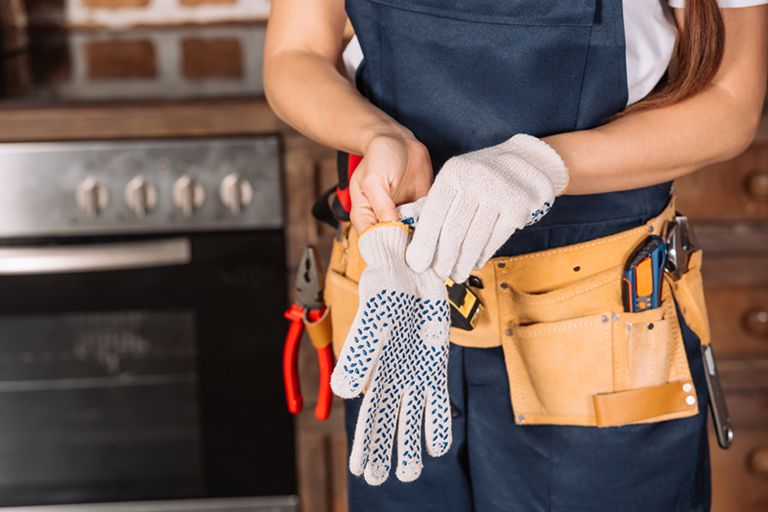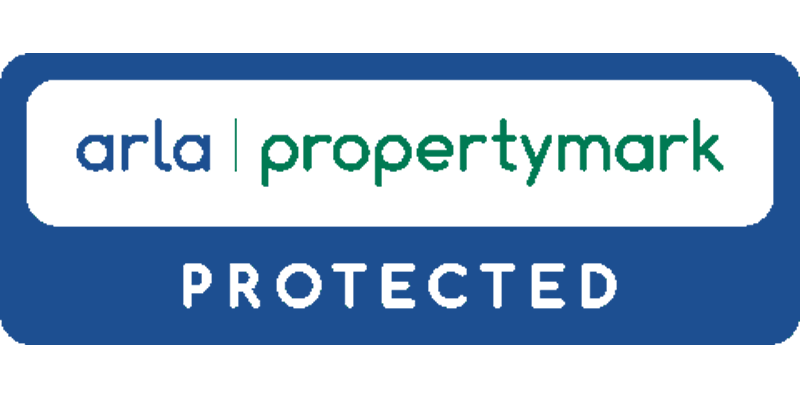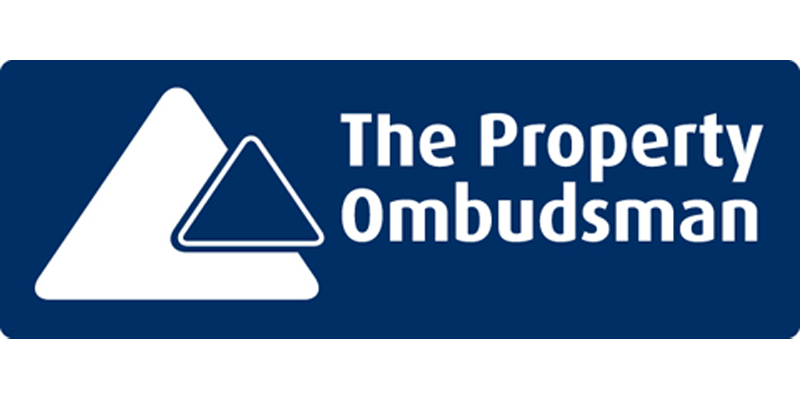Is this the right time for you to buy?
Buyers should concentrate on whether buying is affordable and the right decision for themselves in the long-term, rather than panic buy and incur one of the biggest liabilities they will ever take on. Make sure you do your home work.
Here is some advice on what steps you can take as a buyer to help you on the road to being a home owner, whether for the first time or even if you are a seasoned, hardy moving professional.
A mortgage is most people’s biggest single outlay, and small differences in how much you borrow can have a massive effect. Please make sure that when you are looking for a mortgage you see a fully independent, whole of market and free mortgage broker. Normally if you go direct to your bank they will offer a range of products but not necessarily the best one for you as ultimately they do work for the bank and the banks shareholders and are trying to make them as much money as possible, not save you as much money as possible.
An independent broker is employed by you to find you the best deal from the entire mortgage range available on the open market. The broker normally gets paid by the lender that they place you with and this is why you should never pay up front for mortgage advice.
Some Estates Agents will tell you that it is either their company’s policy or that the seller has requested that you see the estate agents financial advisor so that they can qualify you as a buyer – THIS IS ILLEGAL. All you need to provide is either an agreement in principle, bank statement or provide the details of your own financial advisor.
It’s not as easy as you may imagine. Buying a home will almost certainly cost more than you think. Here are some points to factor in.
- Mortgage arrangement fee: Expect to pay your lender an arrangement fee. They vary but £1,000 is typical. In some cases this is non-refundable, even if the purchase falls through.
- Valuation fee: This is the fee lenders charge for a valuation to check the property exists and that it also offers sufficient security for the loan. The cost varies according to lender and purchase price, but you would be wise to budget for £300.
- Legal fees: Many lenders will contribute to legal fees, although in that case you would have to use a solicitor approved by them. If you pay for your own conveyancing, you’re looking at about £500-£800, depending on purchase price.
- Stamp duty: If you are buying a property for more than £125,000, you’ll have to pay stamp duty on its purchase price. The level of stamp duty will vary depending on the value of the house that you are buying and also if you already own another property, you may pay more stamp duty than someone who is buying it as their main and only property.
- Surveys: These are another costly aspect to any purchase, with a typical survey costing between £400 and £700.
- Removal costs: Unless you are intending on putting all of your belongings into the back of a car, you may want to factor in renting a removal van. These can start at £100 for small local moves, but can easily be in up to the £1,000 for moving a family’s worldly possessions long distances.
- Home repairs: From flaky paintwork to leaky sinks, put aside some cash for unexpected property maintenance.
- Furniture and extras: If you are currently renting a furnished place? Remember you’ll need to buy everything from beds and sofas to lawnmowers and carpets. Then there are those essential extras: light bulbs, lamp shades, toilet brush, washing up bowl, door mats, hooks and extension leads. See how you could furnish your new home for free on Freecycle and Freegle.
It is important to find out how much you can borrow before you start house hunting. It is not always the best thing to borrow right up to the maximum that they will lend you as you may want to borrow some more money in the future for redecorating, repairs or upgrades in the home.
- Find a property: Research the area, scour estate agents and search websites.
- Put in an offer: Tell the seller what you’re willing to pay and any conditions. Offer to exchange: normally 6 to 10 weeks
- It’s accepted: Now get a survey to check the property’s condition. Your solicitor checks any legal issues.
- Exchange: You pay your deposit and can’t back out without major cost. Exchange to completion: This can be simultaneous or have a gap up to 4 weeks
- Completion: You hand over the rest of the cash in exchange for the keys and deeds. The property’s now legally yours. From offer being accepted through to completion and getting the keys could be 12 to 14 weeks
It is important not to apply for mortgages before checking your credit files with one of the main agencies. Small mistakes may lead to your application being rejected. For example, active accounts registered to old/wrong addresses can hurt badly, so whip through your credit files and ensure any active account (even historic and unused) is registered at the correct address. It’s possible to check your files by using companies like Experian.
Few lenders will offer you an actual mortgages until you have actually had an offer accepted on a property, they will, however, offer you an ‘Agreement in principle’ (AIP). This provisionally lets you know how much you can borrow, subject to finding a suitable property in a specified time.
Proof of your deposit and AIP can give you a big advantage when putting in an offer on a property. It may mean a credit check, (each time someone does a credit check on you it will leave a mark on your credit history), although one mark on your file isn’t too big a deal, but if you get too many mortgage brokers or banks doing a credit check on you it could really hurt your credit score. Do bear in mind AIPs give absolutely no guarantees – they are subject to a surveyor doing a valuation on your chosen property.
No matter how plush the pad, always remember the saying, Location, Location, Location. You can’t move a home to another spot, but you can do it up.
So prowl the neighbourhood on foot, hunting for clues. Visit the parks and pubs at different times of day.
Are cars clean and well-maintained?
Do you like the local shops?
Are walls scrawled with graffiti?
Get the lowdown from locals and ask a local bobby or Neighbourhood Watch co-ordinator.
If you’re a total newcomer, stay in a local bed and breakfast or Airbnb room to get a real feel for the area.
Police crime-mapping websites show local hotspots and break down recorded crimes such as burglary and anti-social behaviour.
Elsewhere, there’s free information on school league tables and even noise level checks.
Gone are the days when peering into estate agents’ windows was the only way to see how much folks were advertising a house for or waiting for the weekly newspaper with the free house selling supplement in it.
There are plenty of property search sites out there. Remember asking prices can be wildly optimistic, showing what the seller wants for the property, not what the property is actually worth.
Some properties do actually get sold prior to them even coming to the open market or appear on these sites, so make friends with your local estate agents to hear as soon as a place comes on to their books.
Rightmove
Widely known as the market leader of all property search websites, Rightmove, is the best place to compare homes on the market. As well as having the lions share of number of properties up for sale, it plots listings on a Google map for ease of use.
Zoopla
Zoopla also lets you match up sold prices with old property adverts, including photos, asking prices, descriptions and floor plans. Go to Zoopla’s sold prices section, search for an area and click on a property for historic listings.
Before putting in an offer, pose as many questions as possible – and get important answers in writing. Nothing is too silly. You may notice them squirming when you broach certain subjects.
- How many viewings has it had?
- How many offers has it had?
- How long has it been on the market?
- Can I see electrical and gas installation checks/reports?
- How long is the lease (if it has one)?
- Have there been any neighbour disputes?
- Why are the vendors moving and are they sure they want to sell now?
- What renovations have been done?
- How old is the boiler and when was it last inspected?
- When was it last rewired?
- Where are the vendors moving to – is there a chain?
- If a flat, how much are service charges and ground rent?
- Who lives upstairs/downstairs/next door?
- What’s included in the sale? White goods? Curtains? Wood burner?
- Are there any parking issues?
- If there’s a real fire, is it safe to use?
- What’s the council tax band?
View the place three times at different times of the day to get an idea of what the flat and neighbourhood are like. Daylight makes spotting flaws easier.
If you want something in a specific area or street, set an alert on Rightmove and it will email each time a vendor lists a property. Simply type a postcode or area and click ‘save search’.
Sometimes, you don’t need to waste money on a survey only to discover obvious problems. For second or third viewings, take an expert, builder or more experienced friend to give their honest opinion of the property condition.
Small issues such as a broken kitchen drawer need not be a deal-breaker. But make a list, so you can ask the seller to fix before you get the keys.
- Damp: Look around the house for wet spots, mould, peeling wallpaper and condensation on windows. Check inside cupboards too. Use your nose – does it smell musty?
- Ceilings: Look for cracks, brown stains, slow drips and problem leaks.
- Doors and Windows: Also shut every door behind you as you’re being shown around to make sure they all work. Open cupboards and drawers with a smile and say: “I do hope you don’t mind.” Remember, you’re giving them possibly £100,000s.
- Electrical Switches: Turn lights on and off, especially those with older switches. Also check the wiring’s age, as updating electrics can cost large.
- Plumbing: Check cupboards underneath sinks are dry. Check water pressure and that it gets hot.
- Heating: Ask the seller to switch on the boiler and turn on the central heating. Check the radiators for leaks and rust, and make sure they all get hot right across the surface.
- Locks: Ensure door locks are up to insurance standards. Most policies insist that front and back doors be fitted with a five lever mortice deadlock. Check windows for locks and the front door for break-in signs.
If you don’t want to live in the property until you die, consider ease of resale. This may be your dream home, so you can live with walking through the kitchen to get to the bathroom. But will others?
If it’s been hanging around on the market for a while, mull over why it hasn’t shifted. Are people put off by the street, a takeaway shop below, lack of parking or weeny garden?
Buy a home and you’re likely to owe stamp duty (it’s called that because the document used to require a stamp to make the transaction legal). It’s one of the biggest lump-sum taxes and can add significant costs. Ask the agent what your stamp duty liability may be.
If you own a leasehold flat, you effectively own the rights to live there for an agreed period of time. When flats have 75 years or less left, extensions become very costly and homes much more difficult to sell. Under 60 years, is almost impossible to get finance on the property. If you are looking for a flat or an apartment, alarm bells should ring if a lease is nearing, or below, 80 years.
You have to have owned the flat for two years before you can extend. A seller can get the ball rolling and pass the rights to the purchaser.
If a buyer waits until they’ve completed the purchase, it’ll be another two years before they’ve a right to extend. It can take between 3 and 12 months to get a lease extension through, so it is advisable to look for properties with at least 83 years to run.
It is not the responsibility of the solicitor to point out short leases, however in most cases they will inform you.
Rightmove’s free iPhone and Android apps use GPS technology to pinpoint new homes for sale near where you’re standing. Download the app, click ‘get my current location’ and it shows a list of properties up for sale.
When you own a leasehold flat, the freeholder (or landlord) is usually responsible for insuring the building and maintaining communal areas.
Leaseholders must pay ground rent (usually small and called “Pepper Corn”) and service charges to the freeholder. The service charge normally covers heating, lighting and cleaning of any communal areas, your contribution towards the buildings insurance, contribution towards the cost of a black management company and may well also include the provision of a sinking fund (the residual amounts of monies at the end of each year that build up to cover any other unforeseen repair costs).
Flat hunters should always get ground rent and service charges in writing before buying.
You can Google any property management company to check their reviews for any complaints.
Local Authority Searches are there to ensure that any proposed new constructions or alterations to existing buildings will not adversely affect the property that you are looking to purchase. For England and Wales, the Government’s Planning Portal helps avoid unexpected surprises by directing you to planning applications made in your area. You can search by postcode and area.
Always ask the agent as they really do want to sell the property and will also guide you in the right direction. Remember, if you put in an insulting offer the vendor may very well decide that they are unwilling to take a lower offer because you have offended them.
Some Estates Agents will tell you that it is either their company’s policy or that the seller has requested that you see the estate agents financial advisor so that they can qualify you as a buyer – THIS IS ILLEGAL. All you need to provide is either an agreement in principle, bank statement or provide the details of your own financial advisor.
Make your offer on the condition that the seller “takes the home off the market”. This cuts the chances of you being gazumped, where the seller accepts another higher offer after the sale has been agreed. Until contracts are exchanged, the buyer or the seller have the right to pull out at any time.
Always remember that it is your solicitor that will usually determine the speed at which your purchase will go. To put it politely, some solicitors work at their own pace. Make regular phone calls to get papers processed quicker. You are paying them. If they don’t meet your expectations, try writing to a senior partner.
I always say that your choice of solicitor will determine how easy or hard your purchase will be!
When you buy a property, the solicitors should include a full fixtures and fittings list which will detail exactly what will be left in the house on the day that you complete the purchase. This list will include the light fittings, the TV aerial cable screws, the black bin and even the kitchen sink.
If you’re paying extra for any fittings, to see if you could buy it new cheaper, there’s a quick way to get this information on both new and second-hand items’ values on eBay. Fill in the search box and tick ‘completed items’ on the left-hand grey bar. It’ll come up with a list of prices similar items have already sold for.
You can pull out from the purchase at any time before contracts are exchanged. After this point you are legally obliged to pay any related costs including normally the agreed deposit amount (anywhere between 10% and 25% of the agreed sale price), you can’t change your mind without incurring massive costs.
If the seller pulls out before you exchange contracts, you have no legal right to recover any costs from them.
One option is indemnity insurance for costs – consider asking your solicitor about this before you start the legal process.
There are two main types of survey. The first is a basic mortgage valuation. This normally costs a few hundred pounds and is suitable for conventional properties less than 50 years old.
For older or quirkier residences, consider a Home Buyers report. These are super-detailed, covering everything, and can cost up to £1,000, but often they’re well worth the expense. It could well give you ammunition to haggle down the price; however the vendor is not legally obliged to automatically reduce his sale agreed price to suite the survey. Usually, if you agree to let the agent have a copy of the survey, they will try to negotiate some middle ground on your behalf.
The one thing to remember is that at the end of the survey, they will state the surveyor’s qualified and professional opinion of the property’s value. If this matches the figure that you have agreed to pay for the property the vendor has no obligation or incentive to alter the agreed selling price at all.
If the survey finds any unforeseen faults with the property, ask a reputable builder for repair costs. Ask the vendor to either fix it before completion or could the cost be deducted from the purchase price.
Do get a second opinion, especially with damp. What might seem like minor work can turn out to be complex and expensive.
Up to 400,000 homes in England and Scotland may have been in the wrong band since the early 1990s. If so, you can get your band lowered and a backdated payout.
First see if neighbours in identical or similar properties are in lower bands, via the Valuation Office Agency. Then use the web to value your house for free, and convert it back to its key 1991 price.
See the Council Tax Reclaiming guide for a special calculator and how to safely reclaim.
It is a good thing to remember to ask the previous owner all the essential questions before they give you the keys. To help, we’ve compiled a list of top questions to ask:
- Where’s the main stopcock (to shut off the water)?
- Where are the gas and electricity meters?
- Do any surfaces need special cleaning products, for example wooden floors?
- What day do the dustmen come?
- Do you have any old tins of paint in the same colour as the walls?
- Do you have any instruction manuals or warranties on electrical items?
- Where did the kitchen and bathroom tiles come from?
- Where did any fixed furniture come from, eg, kitchen cabinets?
- Who supplies the energy, broadband and home phone?
- Where is the thermostat?
Always get home insurance quotes before you exchange contracts to ensure suitable cover is available. This could flag up issues, for example if the property’s in a flood-risk area.
You do not have to use your mortgage provider’s insurance cover.







































